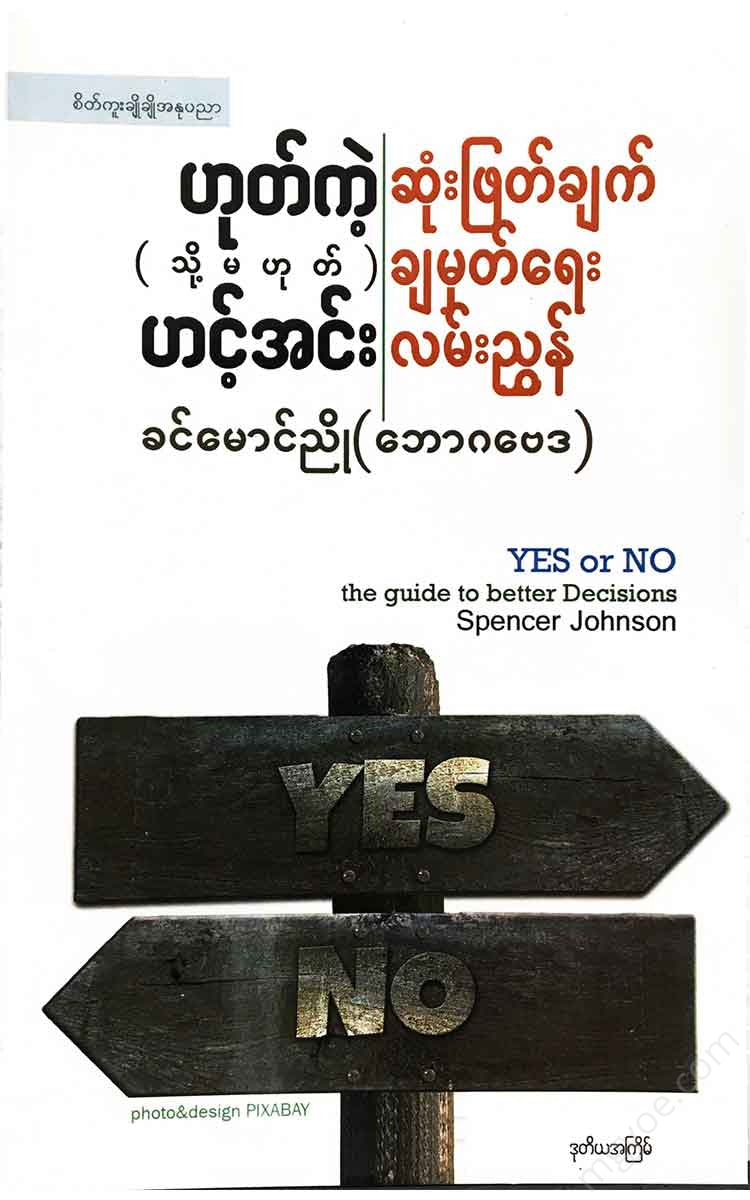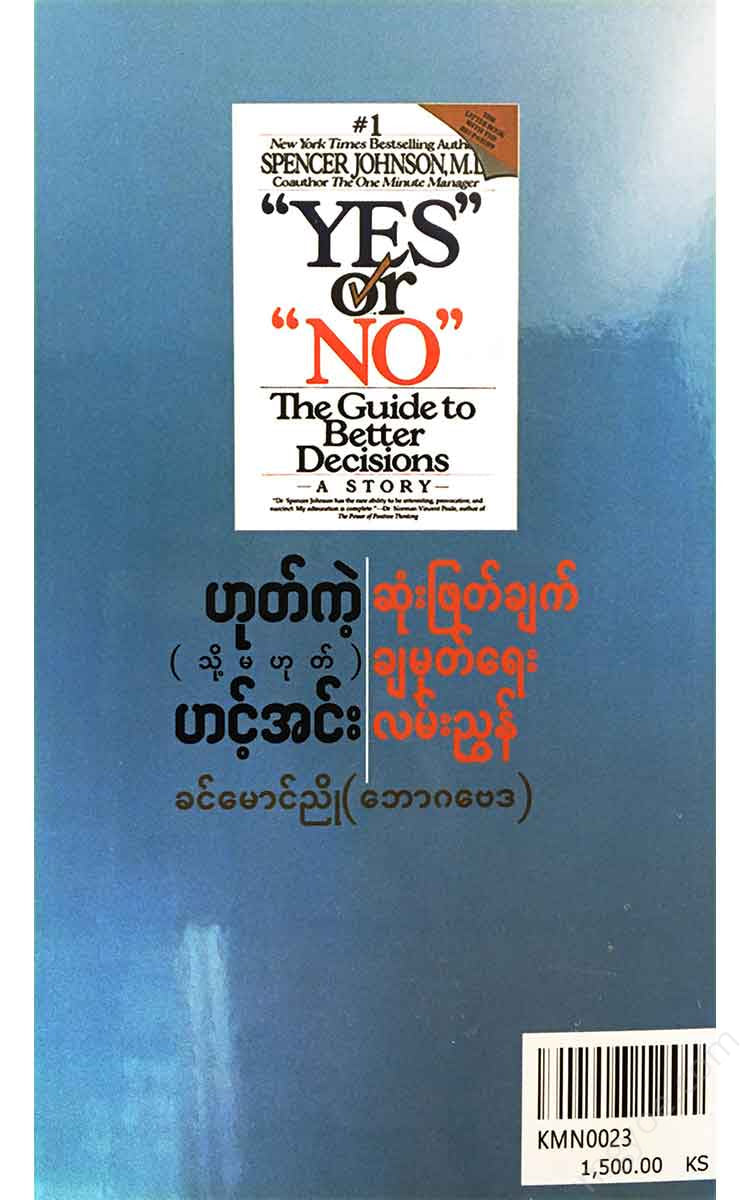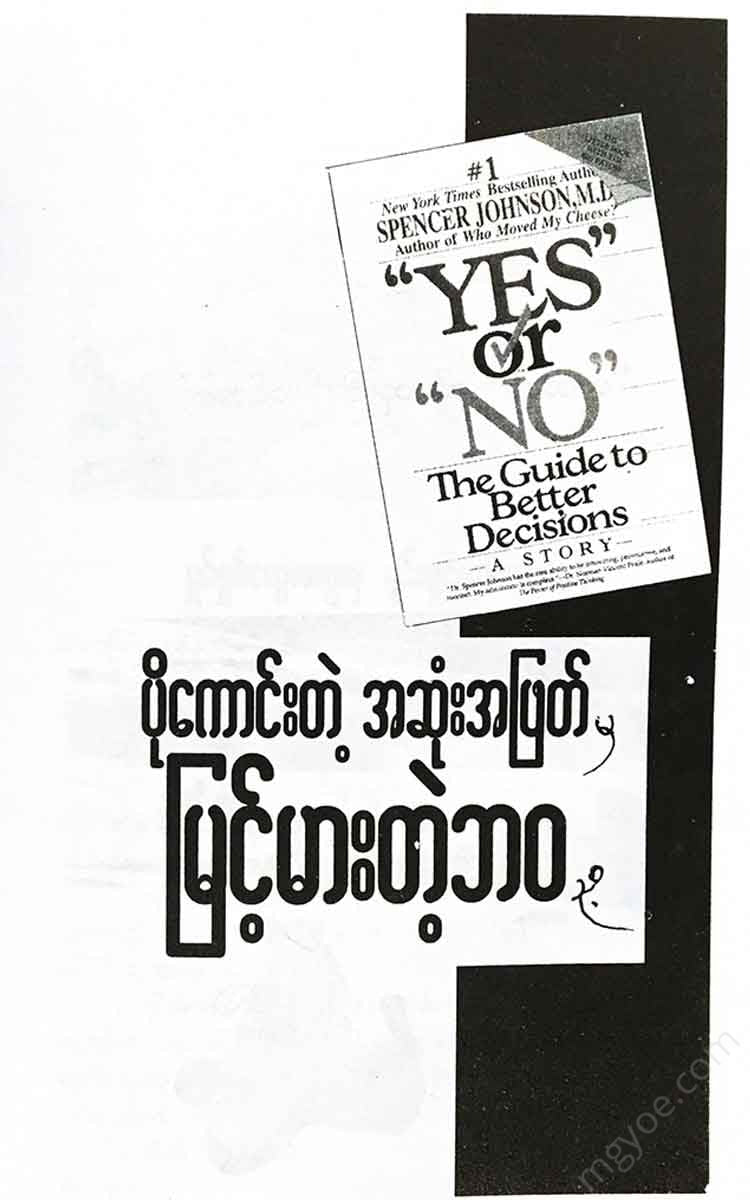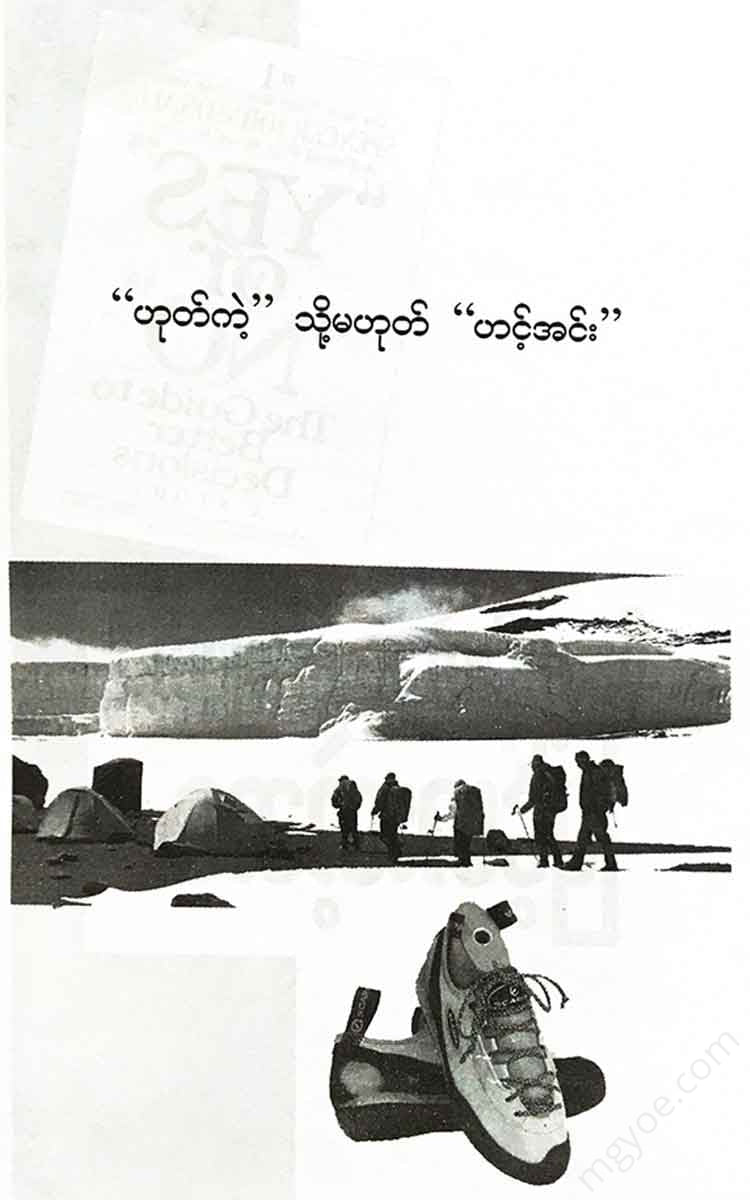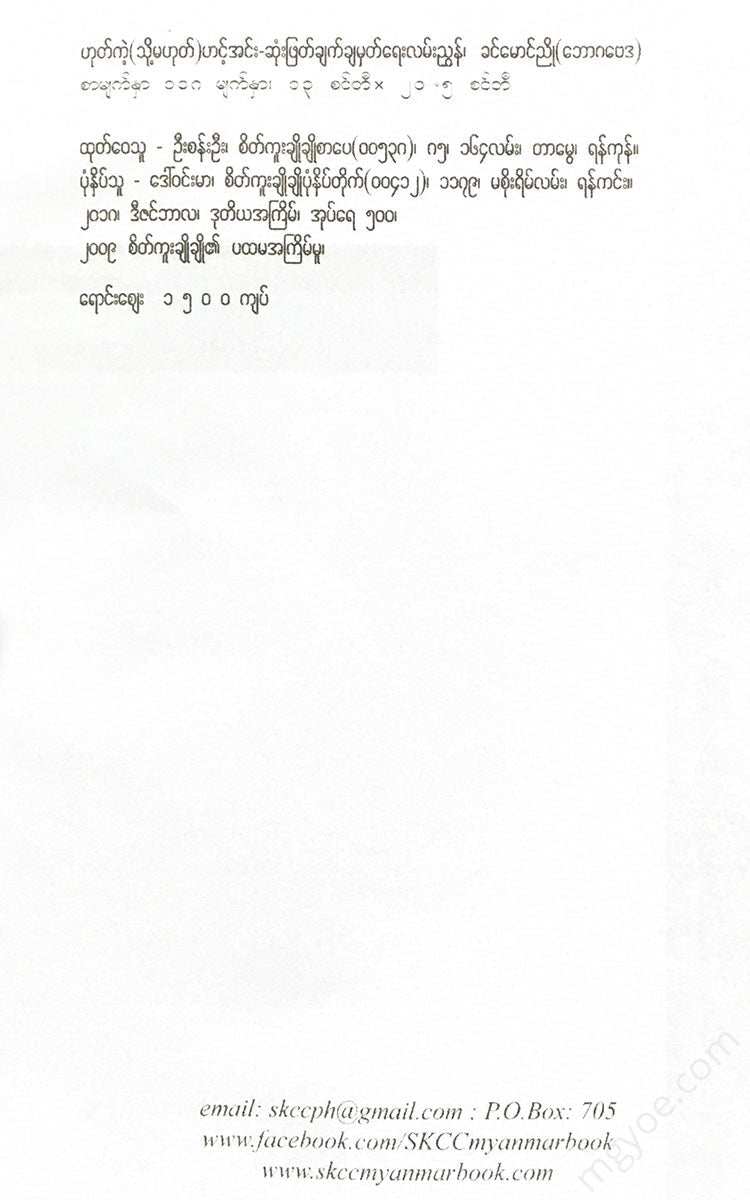စိတ်ကူးချိုချိုစာပေ
Khin Maung Nyo (Economics) - A Guide to Making a Yes or No Decision
Khin Maung Nyo (Economics) - A Guide to Making a Yes or No Decision
Couldn't load pickup availability
From confusion to clarity
Friday morning
Once upon a time, there was a man who was searching for ways to make better decisions in order to be more successful and have less suffering in his life.
He didn't make decisions quickly or rashly, but when he did, it caused problems at work and sometimes in his personal life.
He felt that his poor decisions were causing him harm. So he figured there had to be a way to make good decisions.
So, I set off early in the morning to a nearby mountain and meet other businessmen at the summit. At the summit, I will experience the leadership of a great businessman and a guide. A guide is someone who provides guidance on the climb and on decisions.
Many people find that they can rely on a reliable system for decision-making and are able to make better decisions when they return from vacation.
How did they become so good at making decisions in such a short time?
Soon the young man was walking along the foot of the mountain. He had taken off his thin jacket and tied it around his waist. He was sweating now. It wasn't because of the morning sun, but because of fear. He knew he was late and on the wrong path.
When he left the house, he remembered that he had forgotten the map to the resort. He wanted to take it back. But he didn't want to go back because he was afraid that if he did, he would be even later. It was already very late, so he quickly walked back to his original destination.
The young man consoled himself by saying that he was not the only one who needed to make good decisions. He was part of a group of businessmen who were making rash decisions.
Decision-making results in corporations, small businesses, schools, government agencies, and often in the personal lives of individuals.
Their choices and outcomes seem to have no connection whatsoever.
The young man wondered why so many people make such poor decisions.
He also criticized himself. He didn't know how to be a clear leader, a clear member of a group, a team, he knew that sometimes he was not clear. He didn't want to make mistakes, he realized that he hadn't learned how to make decisions like everyone else.
At that moment, he stepped on a dry branch, and the sound of the branch breaking reminded him of his surroundings. He stopped and looked around.
Then I met another person.
For a moment, the two men stared at each other intently, and the young man saw a clarity in the older man's sunburned face.
He wondered if this tall, white-haired, healthy-looking man was his guide. But for some reason, he felt safe in front of him. He said, “I’m looking for a way up a hill.”
The old man replied. “I am your guide, you are on the wrong path now,” he said. Then, as he turned away, the young man followed.
The guide turned and said, “You should carefully review the decisions you made today.” The embarrassed young man said nothing, just thinking about his decisions.
After a while, the guide asked, "Why are you going up to the top of the hill?"
The young man replied, “I want to know how the best decisions are made.” As he answered, he wondered what the best decision was. Sometimes the confusion is because he doesn't know which decision is a good one.
As he continued on his way, the guide said, “You don’t always have to make the best decisions, you just have to make better decisions, because if you can make better decisions, you’ll end up doing well, just like all of us.”
The young man felt relieved. "
"Let me ask you, what is the better decision?" he said.
The guide said, "A better decision is one that is made without asking yourself, without asking yourself, some questions that are valuable to you."
“Like everyone else, you sometimes feel uncertain, hesitant, and uncomfortable making decisions. Many of the people you will meet at the top of this hill have overcome these feelings by using a reliable system.”
“A reliable system has two functions. One is to use your head, and the other is to consult your heart. Using your head and consulting your heart, you can make better decisions. In this system, there are two valuable questions to ask yourself. To those two questions, we answer yes and no, and that’s it.”
The young man immediately asked, "What are those two valuable questions?"
“Before we go to the question, wouldn’t it be a good idea if we started our journey?” the guide asked.
When the young man agreed, the guide asked, “Do you know what you should do first if you want to make better decisions?”
“I’m not sure,” the young man replied. “If you don’t know what to do…”
“Do you know what not to do?” the guide asked.
Young people are usually busy with many tasks and don't often think about what not to do.
The guide suddenly stopped. Then the young man behind him also stopped.
The guide said, “You have to stop what you are doing.”
Then the guide took a piece of paper out of his pocket and showed it to some of them.
The young man read it and thought about it. Then he took out a small red diary from his backpack, opened it, and began writing notes.
"To make a better decision, you must first stop making a bad decision."
The guide said –
“If you don't make a bad decision, it will leave a void, and you can fill that void with something better.”
The young man said, “But I’m afraid that if I give up what I have, I won’t get something better.”
The guide said: “We are all afraid of it, it takes courage to let go of what is familiar and comfortable. But in reality, it is a much more reliable way to get better results.”
“Once you get rid of what doesn't work for you, you're free to find something better. And you can do it faster.”
"There is an old Chinese proverb: If you want a cup of hot water, you must first empty the cup. If you pour hot water into a cup that already has cold water, the water will not enter the cup and will spill onto the plate."
The young man said slowly, “I understand.” Then he spoke of this, and I remembered a friend of mine. He was reluctant to fire an incompetent supplier who was supplying them with goods. The supplier had warned him many times, and despite giving him the opportunity, he was doing a very poor job, supplying poor quality goods. The problem was that my friend didn’t know who could do it better than him, so he didn’t stop doing it. He kept using this person.”
The guide asked, "So what happened? "
The young man said, “The person who imported the goods kept making mistakes, so my friend’s company lost time and money, and in the end, my friend was fired for not doing his job. I don’t even feel like talking about it.”
The young man thought for a moment. Then he asked.
“Why do we keep doing something that isn't working? ” the guide replied.
